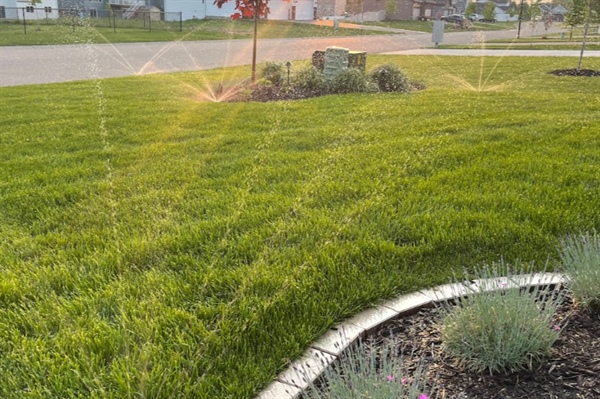Benefits of Installing an Irrigation System for Your Lawn

Installing an irrigation system can revolutionize lawn and garden maintenance. By providing consistent and efficient watering, these systems help create a lush, green environment with minimal effort.
From conserving water to improving plant health, irrigation systems offer numerous benefits for homeowners and commercial spaces alike.
This article will explore key aspects of irrigation systems, including how automated irrigation saves water, their role in preventing lawn diseases, and the best practices for setting up irrigation zones.
We’ll also explore the advantages of smart controllers for optimizing water usage and share essential maintenance tips to ensure long-term performance. As we answer the most commonly asked questions about irrigation systems, you can discover why an irrigation system might be perfect for your outdoor space.
How Does Automated Irrigation Save Water?
Automated irrigation systems are designed to distribute water efficiently, reduce waste, and promote sustainability. By delivering precise amounts of water directly to plants' root zones, these systems minimize runoff and evaporation, which are common in traditional watering methods like hose or sprinkler systems.
Advanced features such as rain sensors and moisture detectors further enhance water conservation. These sensors can adjust or halt watering schedules based on real-time weather data, ensuring that your lawn and garden receive just the right amount of hydration without overwatering.
This approach not only conserves water but also supports healthier plant growth.
Installing an automated system tailored to your landscape can significantly lower your water bills while contributing to environmental conservation. For more on efficient irrigation options, visit Irrigation Sprinklers.
Can Irrigation Prevent Common Lawn Diseases?
Proper irrigation is crucial for maintaining a healthy lawn and preventing diseases caused by overwatering or inconsistent watering.
Diseases like root rot, brown patches, and mildew thrive in excessively damp conditions. Automated irrigation systems help avoid these issues by delivering consistent water levels tailored to your lawn’s needs.
These systems prevent standing water and reduce the likelihood of fungal growth by ensuring even distribution. Adjusting watering schedules based on seasonal needs also balances your lawn’s micro-environment, promoting resilience against pests and diseases.
Understanding how to manage water distribution effectively can save your lawn from many common diseases, ensuring it stays green and vibrant throughout the year.
What’s the Best Way to Set Up Irrigation Zones?
Creating irrigation zones is critical for ensuring your entire landscape receives appropriate water levels. Zones allow you to group areas with similar water requirements, such as flower beds, grassy lawns, or shrubs, and customize the watering schedule.
This prevents overwatering in areas that need less hydration and under-watering in areas that need more.
When designing zones, consider factors like soil type, sun exposure, and plant species. Drip irrigation for flower beds and rotors or sprays for lawns ensure efficiency. A well-planned layout optimizes water usage and minimizes waste, supporting plant health and water conservation.
Consulting a professional for irrigation zone design can help maximize your system’s performance and tailor it to your landscape's unique requirements.
How Can Smart Controllers Optimize Water Usage?
Smart irrigation controllers revolutionize water management by using advanced technology to automatically adjust watering schedules. These devices connect to weather data, soil sensors, and local forecasts to ensure your landscape receives the right amount of water when needed.
Features like mobile app control and programmable settings allow users to monitor and adjust their irrigation systems remotely. This enhances convenience and ensures precise water usage tailored to specific areas of your yard. By reducing waste and preventing overwatering, smart controllers support sustainable practices and help lower utility costs.
Integrating a smart controller into your irrigation system can save time, water, and money, making it an invaluable addition to modern landscaping.
What Are Maintenance Tips for Irrigation Systems?
Regular maintenance is essential for keeping your irrigation system functioning effectively. Start with seasonal inspections to check for leaks, clogs, and damaged sprinkler heads. These issues can lead to uneven water distribution or waste, undermining the system’s efficiency.
Clean filters and flush the system periodically to remove debris obstructing water flow. Adjust sprinkler heads to ensure proper coverage and avoid watering unintended areas like driveways or sidewalks. Also, monitor and update the system’s settings to align with seasonal changes and plant needs.
By staying proactive with maintenance, you can extend the life of your system and ensure optimal performance. For assistance or additional information, consult with Rock Solid Services.
Why Choose Rock Solid Services for Your Irrigation Needs?
Rock Solid Services specializes in designing and maintaining efficient irrigation systems tailored to your needs. Whether you want to save water, prevent lawn diseases, or upgrade with smart technology, our expert team is here to help.
Ready to transform your outdoor space? Call us at 763-398-0739 or visit our Request Consultation page to get started today. Let Rock Solid Services make your lawn care effortless and sustainable!